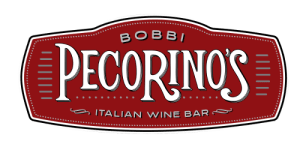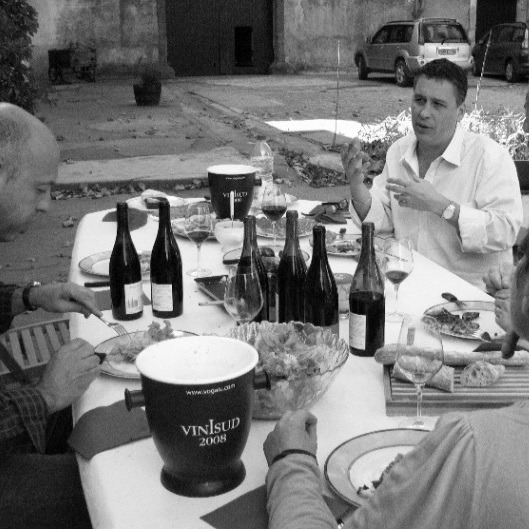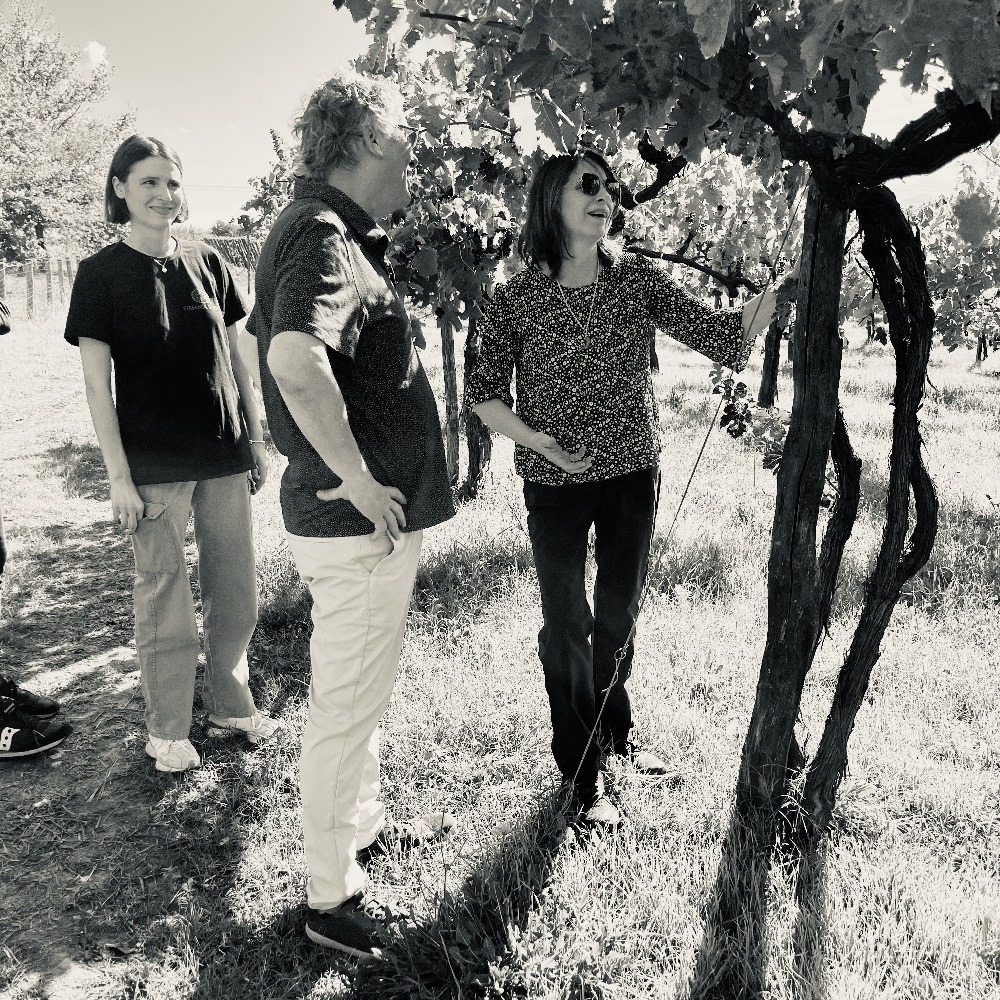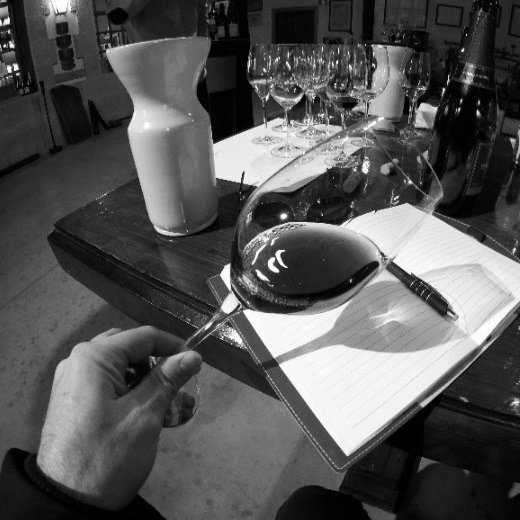At Bobbi Pecorino’s Italian Wine Bar sustainable wines are a major focus of our wine program. Over the past decade, there has been a surge in wines made with minimal intervention and sustainable farming practices. Biodynamic, organic, and natural wines are all part of this movement, with each offering a unique philosophy on how to produce wines that honor the earth and amplify the expression of the vineyard.
For some, these wines represent a more authentic future for wine. For others, they are a trendy detour from established practices. These “bio” agrarian and enological practices play a significant role in which wines we choose to offer at Bobbi Pecorino’s Italian Wine Bar. We have thoughtfully curated a list of wines which follow our beliefs in “Vini Naturali”. As such, let’s dive into each category to explore what sets them apart, their benefits, and the potential they hold for shaping the future of wine.
Understanding Organic Wines: A Commitment to Clean Farming
Organic wines are made from grapes grown without synthetic pesticides, herbicides, or fertilizers, prioritizing the health of the vineyard ecosystem and soil. Organic certification varies by country, with strict guidelines on both grape-growing and winemaking practices. For instance, in the United States, organic wine must not contain added sulfites, while the European Union allows a limited amount of sulfites in certified organic wines.
Organic farming practices promote biodiversity, which eliminates the need for chemical intervention, and the avoidance of synthetic chemicals helps protect soil health and groundwater. Healthy soil involves greater carbon capture and the buildup and retention of nitrates in the soil.
Investigating new wines for our wine bar involves examining the farming practices of our wineries and their long-term plans for healthy soils for the next generation. Wineries like Castello di Verrazzano in Chianti Classico https://www.verrazzano.com and https://cantinafranchetto.com/en in Soave we witness the planting of wildflowers, legumes, and diverse grasses in the vineyards helping to promote healthy soils and dry farming.
Many winemakers and consumers are drawn to organic wines because they offer a cleaner, more sustainable alternative to conventionally produced wines, supporting both the environment and those who enjoy a lower-impact product.
Biodynamic Wines: A Holistic, Celestial Approach
Biodynamic wines take the principles of organic farming one step further, following a spiritual-ecological approach developed by Austrian philosopher Rudolf Steiner in the 1920s. Biodynamic viticulture treats the vineyard as a closed, self-sustaining ecosystem, where the health of the soil, plants, animals, and even cosmic rhythms are interconnected. Biodynamic farmers work with lunar and solar cycles to guide vineyard work, arguing that these rhythms enhance plant vitality and natural resilience.
Unique practices like “preparations,” such as composts made from specific plants or minerals, and burying a cow horn filled with manure to nourish the soil, are also integral to biodynamic farming. While these practices may seem mystical, proponents believe that biodynamic methods bring out deeper, more authentic expressions of terroir, capturing the vineyard’s character in each bottle.
To get a better understanding of Biodynamic farming practices both within the wine world and other agrarian sectors I would highly suggest checking out https://demeter.net. An interesting observation we have experienced over the years while selecting producers for our portfolio and wine bar in Kingston has been that the biodynamic certified wines tend to be more expressive and reflective of a sense of place, longer aging, and complexity.
Wineries such as Tenuta Villa Bellini in Valpolicella https://tenutavillabellini.com/en and https://chateaufonroque.net/en/ in St. Emilion demonstrate such characteristics!
Natural Wines: Minimal Intervention, Maximum Expression
Natural wine is generally made with as little intervention as possible, both in the vineyard and winery. Though not an officially certified category, natural winemaking emphasizes organic or biodynamic grapes, minimal or no additives, and low-intervention fermentation. Most natural winemakers avoid added sulfites and eschew processes like fining and filtration, allowing the wine to express itself more freely.
This hands-off approach can produce wines with flavors that are raw, earthy, and distinctly expressive. Natural wines often appeal to those seeking a bold, unpolished taste experience that emphasizes the grapes and vineyard’s true character. However, the lack of stabilizing techniques means natural wines can be unpredictable, with flavors that vary from bottle to bottle and vintage to vintage, offering an element of surprise. The best wines of the world are natural but so are many of the worst. In the worst examples, grapes lose their flavour profiles and wines lose their sense of place.
How Do These Wines Taste? Flavor Profiles and Differences
The distinctive approaches of organic, biodynamic, and natural winemaking lead to unique flavor profiles. Organic wines often have a clean, vibrant taste, letting the natural grape flavors shine without the interference of synthetic chemicals. They can be quite similar to conventional wines but with a purity that many find refreshing.
Biodynamic wines often exhibit a greater depth of flavor, with winemakers claiming that the biodynamic practices give these wines a sense of vitality and authenticity. Fans of biodynamic wines often describe them as more complex, with a palpable sense of “terroir” or the characteristics imparted by the vineyard’s specific soil, climate, and topography.
Natural wines, by contrast, can taste earthy, funky, and even sour due to the lack of additives and the presence of natural fermentation agents. These wines may be cloudy or have sediment due to unfiltered production, which adds to their raw appeal. Natural wines tend to be polarizing; those who love them appreciate their unpredictability and vibrancy, while others may find their unconventional flavors challenging.
Environmental Impact: Why Sustainability Matters
Organic, biodynamic, and natural wines appeal to environmentally conscious consumers by supporting sustainable practices that are gentler on the land. Organic farming avoids synthetic chemicals, protecting the surrounding ecosystem and reducing water pollution. Biodynamic farming takes this a step further, enhancing biodiversity and soil health through regenerative agriculture techniques.
Natural wines, although not necessarily organic or biodynamic, are often made by small, independent winemakers committed to reducing environmental impact. By avoiding additives and focusing on low-intervention methods, these wines often have a lower ecological footprint compared to mass-produced wines. Collectively, these approaches contribute to a more sustainable wine industry that respects the earth and mitigates harm.
The Debate: Are These Wines a Passing Trend?
With the growing popularity of biodynamic, organic, and natural wines, some traditionalists are skeptical, questioning whether these approaches are more about marketing than substance. Critics argue that the lack of regulation and standardization in natural wines, in particular, can lead to inconsistent or bacterias flawed bottles. Because these wines are made with minimal stabilizers, they may be prone to spoilage, with off-flavors such as “volatile acidity” or “mousey” aromas that detract from the enjoyment.
While we promote “Vini Naturali” products at Bobbi Pecorino’s we avoid what we deem “dirty” natural wines. We hold to the position that “Bio” wines are in fact natural wines and that the natural wine movement has greater differences within its paradigm than between Bio and Natural wines themselves.
Another debate centers around aging potential. Organic and biodynamic wines often fare well over time, especially if sulfites are used conservatively to prevent oxidation. However, natural wines, due to their lack of stabilizers, can have a shorter shelf life, and collectors may be hesitant to cellar them for long periods.
Are These Wines Here to Stay?
The demand for biodynamic, organic, and natural wines shows no signs of slowing, especially among younger consumers and environmentally conscious drinkers. These wines align with modern values of sustainability, transparency, and health, as well as a desire for authentic, unfiltered taste experiences. Their distinct flavor profiles and philosophies appeal to wine lovers who want to go beyond conventional wines and explore something rooted in respect for the environment.
Furthermore, as climate change poses new challenges for vineyards, these sustainable practices offer viable solutions. Biodynamic and organic methods help maintain healthy soils and resilient ecosystems, while low-intervention winemaking reduces the industry’s reliance on additives and chemicals. As these approaches continue to gain traction, biodynamic, organic, and natural wines may indeed represent the future of wine.
A Personal Choice
Ultimately, whether biodynamic, organic, and natural wines are worth exploring depends on individual taste and values. For those who prioritize sustainability and authenticity, organic and biodynamic wines offer a meaningful alternative to conventional bottles. For those interested in natural wine-making, the distinctive flavors and occasional imperfections might be an acquired taste.
In a world where wine is often mass-produced, these wines serve as a reminder of the art and dedication that goes into each bottle. By celebrating biodiversity, honoring the vineyard’s natural rhythms, and embracing minimal intervention, biodynamic, organic, and natural wines encourage us to reconnect with nature — and to savor each sip as a true product of its place.



